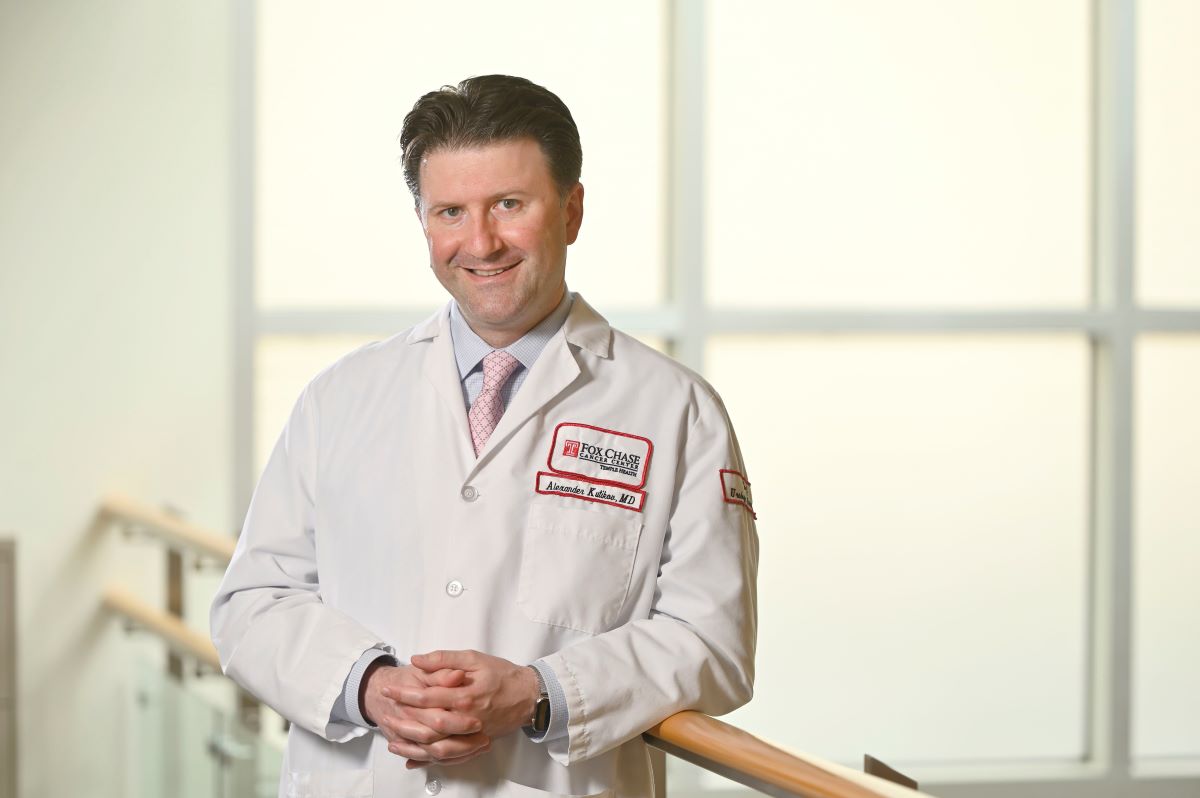
PHILADELPHIA (September 24, 2025) — Modifiable risk factors such as obesity, smoking, lack of exercise, diabetes, and hypertension are projected to be one of the main drivers of a steep rise in kidney cancer cases, doubling the amount worldwide over the next 25 years, according to a new study recently published in European Urology.
In 2022, nearly 435,000 new kidney cancer cases and 156,000 deaths were recorded worldwide. Researchers at Fox Chase Cancer Center were part of an international team that found if current trends continue, those numbers could potentially double by 2050.
“Kidney cancer is a growing global health problem, and both clinicians and policymakers need to prepare for this steep rise,” said senior author Alexander Kutikov, MD, FACS, Chair of the Department of Urology at Fox Chase Cancer Center. “This review is a reference point for the field, summarizing what we know about kidney cancer incidence, survival, genetics, and risk factors.”
Key findings from the review include:
- Survival Disparities: Five-year survival rates vary from 40% to 75%, depending on geography and access to care. Wealthier regions see improved survival due to earlier detection through routine imaging and greater access to surgery, systemic therapies, and radiation treatments.
- Genetic Risk: An estimated 5% to 8% of kidney cancers are hereditary, often linked to mutations in specific genes. Genetic testing is recommended for individuals diagnosed at a young age, patients with cancer in both kidneys, and those with a family history of the disease.
- Modifiable Risk Factors: More than half of kidney cancer cases worldwide can be attributed to preventable factors including obesity, diabetes, hypertension, chronic kidney disease, smoking, environmental exposures, and lack of physical exercise.
- Prevention: Lifestyle changes such as weight control, blood pressure and blood sugar management, and smoking cessation can significantly lower risk.
“Lifestyle changes like weight control, blood pressure and blood sugar management, and especially smoking cessation, can significantly lower risk,” said Kutikov. “These are prevention strategies that can make a real difference.”
In addition to Kutikov, researchers from the Fox Chase - Temple Urologic Institute contributed to the review. As part of the executive management team of the Institute, Kutikov noted the importance of having trainees participate in research, highlighting Fox Chase’s impact on the field of kidney cancer research and care.
The study, “Epidemiology of Renal Cancer: Incidence, Mortality, Survival, Genetic Predisposition, and Risk Factors,” was published in European Urology.